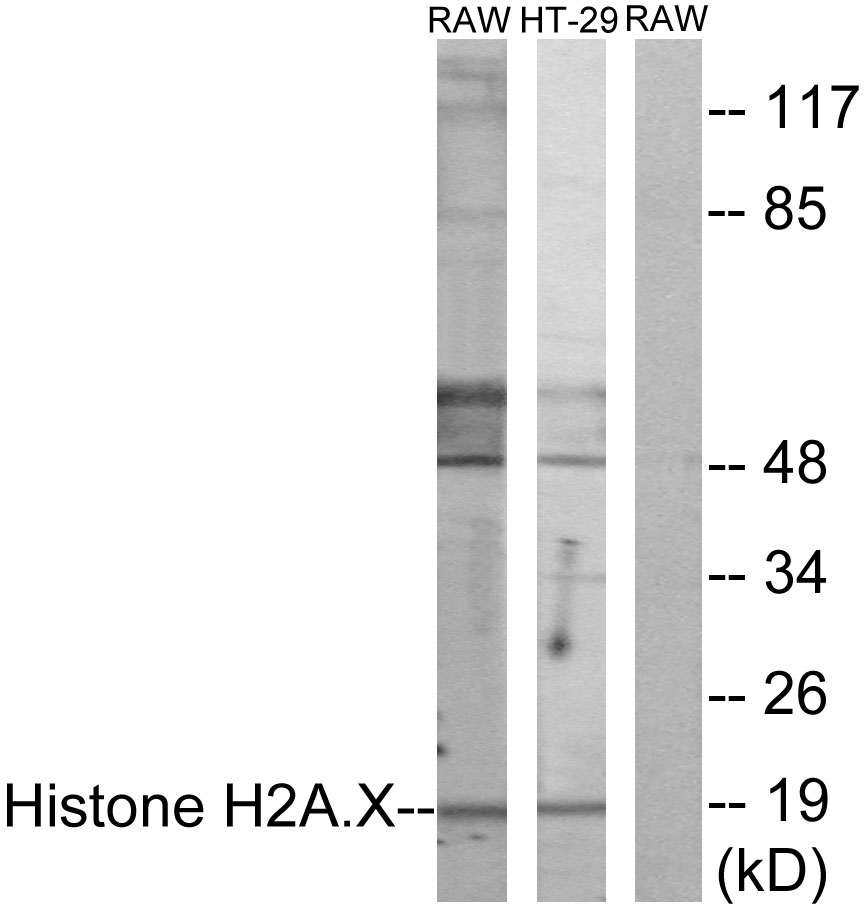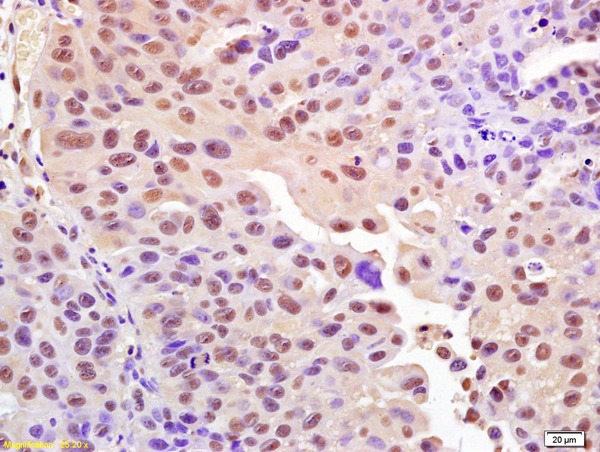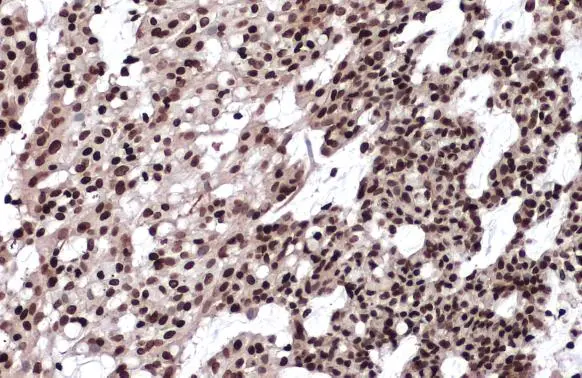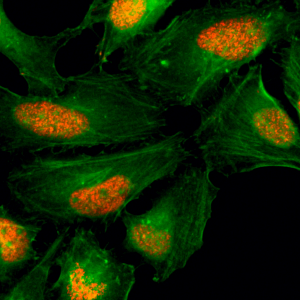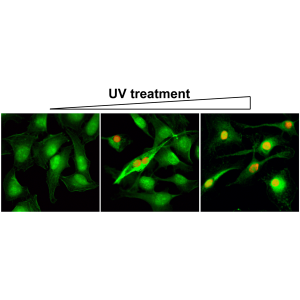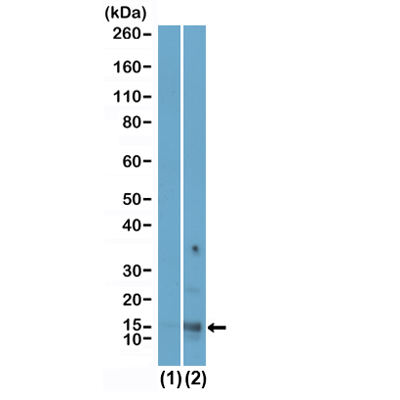
anti-Acetyl-Histone H2A.X (Lys9), Rabbit Monoclonal (RM446)
REV-31-1337-00
ApplicationsWestern Blot, Other Application
Product group Antibodies
ReactivityHuman, Vertebrate
TargetH2AX
Overview
- SupplierRevMAb Biosciences
- Product Nameanti-Acetyl-Histone H2A.X (Lys9), Rabbit Monoclonal (RM446)
- Delivery Days Customer2
- ApplicationsWestern Blot, Other Application
- CertificationResearch Use Only
- ClonalityMonoclonal
- Clone IDRM446
- Concentration1 mg/ml
- Gene ID3014
- Target nameH2AX
- Target descriptionH2A.X variant histone
- Target synonymsH2A.X, H2A/X, H2AFX, histone H2AX, H2A histone family member X, H2AX histone, histone H2A.x
- HostRabbit
- IsotypeIgG
- Protein IDP16104
- Protein NameHistone H2AX
- Scientific DescriptionHistones are proteins that package DNA into nucleosomes. Histones are responsible for maintaining the shape and structure of a nucleosome. One chromatin molecule is composed of at least one of each core histones per 100 base pairs of DNA. There are five families of histones known to date; these histones are termed H1/H5, H2A, H2B, H3, and H4. H2A is considered a core histone, along with H2B, H3 and H4. Core formation first occurs through the interaction of two H2A molecules. Then, H2A forms a dimer with H2B; the core molecule is complete when H3-H4 also attaches to form a tetramer. Histone H2A is composed of non-allelic variants, including H2A.1, H2A.2, H2A.X, and H2A.Z. H2A packages DNA molecules into chromatin and has been correlated with DNA modification and epigenetics. H2A plays a major role in determining the overall structure of chromatin and regulates gene expression. Protein modification on histone H2A exist and can sometimes result in a change in function. Different H2A variants were exploited to have different functions, genetic sequences and modifications. - Recombinant Antibody. This antibody reacts to Histone H2A.X acetylated at Lysine 9 (K9ac). It shows no cross-reactivity with non-modified Lysine 9 or other acetylated Lysines in histone H2A. Applications: WB, Multiplex. Clone: RM446. Isotype: Rabbit IgG. Formulation: Liquid. 50% Glycerol/PBS with 1% BSA and 0.09% sodium azide. Histones are proteins that package DNA into nucleosomes. Histones are responsible for maintaining the shape and structure of a nucleosome. One chromatin molecule is composed of at least one of each core histones per 100 base pairs of DNA. There are five families of histones known to date; these histones are termed H1/H5, H2A, H2B, H3, and H4. H2A is considered a core histone, along with H2B, H3 and H4. Core formation first occurs through the interaction of two H2A molecules. Then, H2A forms a dimer with H2B; the core molecule is complete when H3-H4 also attaches to form a tetramer. Histone H2A is composed of non-allelic variants, including H2A.1, H2A.2, H2A.X, and H2A.Z. H2A packages DNA molecules into chromatin and has been correlated with DNA modification and epigenetics. H2A plays a major role in determining the overall structure of chromatin and regulates gene expression. Protein modification on histone H2A exist and can sometimes result in a change in function. Different H2A variants were exploited to have different functions, genetic sequences and modifications.
- ReactivityHuman, Vertebrate
- Storage Instruction-20°C,2°C to 8°C
- UNSPSC41116161



